


Naam Karan is a Sikh ceremony of naming a child and it usually takes place in a Gurdwara (Sikh place of worship) after the baby and mother are medically and physically healthy to attend the Gurdwara. There is no timetable for this and the family should not feel undue pressure of any kind and only the well being of the mother and child are considered.

Usually, when a Sikh boy reaches a certain age, usually 11 to 16, a turban ceremony is performed for the child. The Sikhs tie turban for the first time on the head of a child in presence of Sri Guru Granth SahibThis ceremony can be held at the Gurdwara or at any place where the Guru Granth Sahib is installed. At this ceremony, Ardas is recited and then the child’s first turban is ceremonially tied on by the Granthi, or a Sikh elderly person
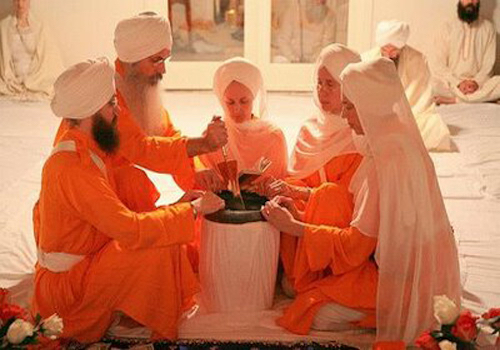
Amrit Sanchar (also called Khande di Pahul and Amrit Sanchar) is the Sikh ceremony of initiation or baptism. The Amrit Sanchar is the initiation rite introduced by Guru Gobind Singh when he founded the Khalsa in 1699. It is conducted. in a holy place, any place sanctified with the presence of Guru Granth Sahib, preferably a Gurdwara. The ceremony is conducted by five baptized Sikhs known as Singhs or Khalsa who must be observant of the Sikh religious discipline and the Sikh code of conduct
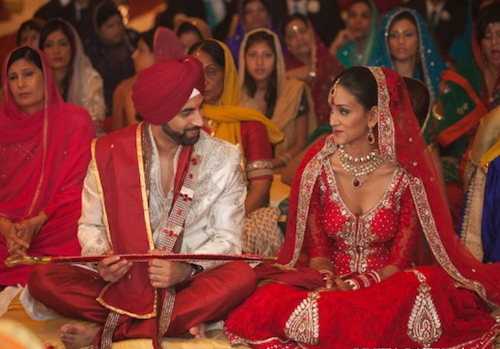
Anand Karaj is the Sikh marriage ceremony, meaning “Blissful Union” or “Joyful Union”, that was introduced by Guru Amar Das. The four Lavan (marriage hymns which take place during the marriage ceremony) were composed by his successor, Guru Ram Das. It was originally legalised in India through the passage of the Anand Marriage Act of 1909, but is now governed by the Sikh Reht Maryada, Sikh code of conduct.
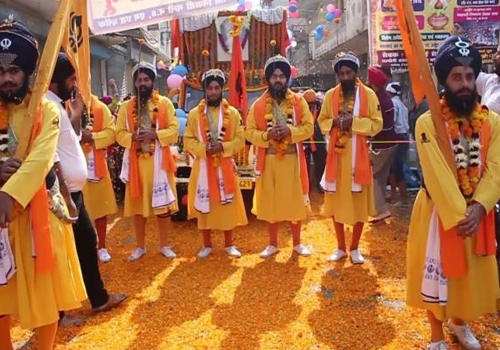
The marking of important anniversaries relating to the birth or death (martyrdom) of a Guru. This includes the full recitation of the Guru Granth Sahib as well as the singing of hymns and Sikh lectures.
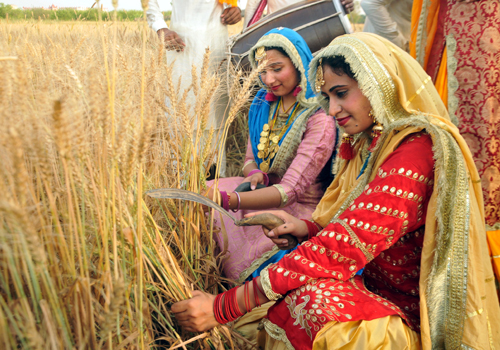
The day is celebrated around the 13th April. It is the celebration of the founding of the Khalsa Order and Sikh nation. Many Sikhs choose to be initiated on this day. Often, a religious street procession marks this key event.
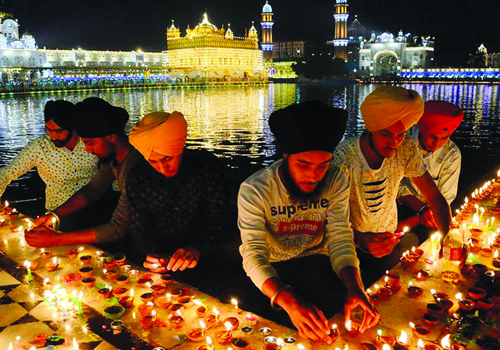
Sikhs commemorate the release of Guru Hargobind (Sixth Guru) from false imprisonment. It coincides with the Indian Festival of Lights (Divali) between the end of October and mid-November. A Muslim saint laid the foundation stone of the Golden Temple, also on this day.
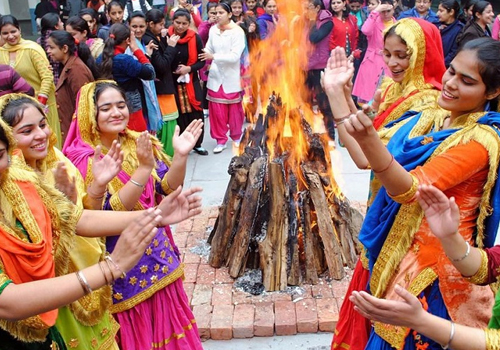
This celebration occurs around the middle of January and marks the martyrdom of forty Sikhs at the hands of the Mughal army.
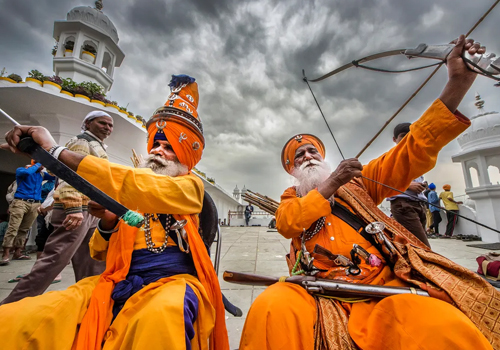
On this day Sikhs practice military exercises, stage mock battles, perform martial arts and organise sports competitions. This is to keep the martial skills and spirit alive. Hymn singing and lectures also take place. It occurs the day after the Indian festival of Holi around mid-March.